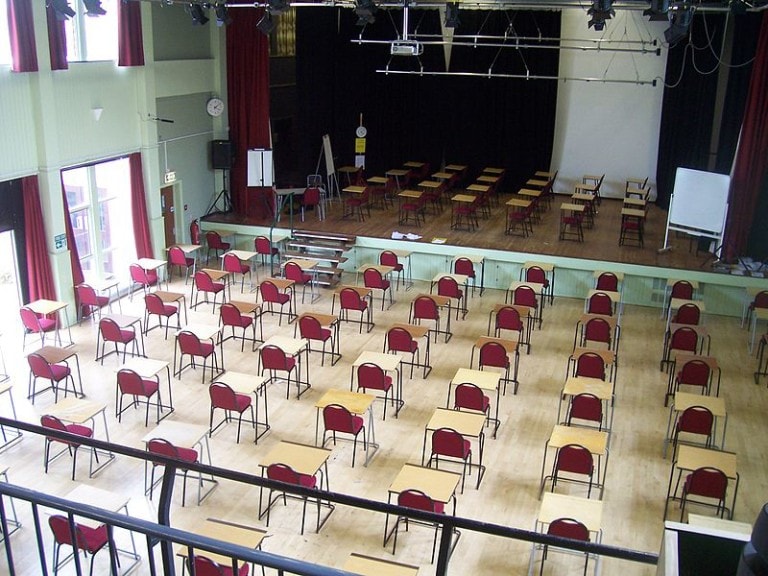Feature image via Leswer, Wikimedia Commons.
The Internet was accessible again in Algeria at 3 p.m. last Sunday, ending government blocking of social media that started on Saturday at around 8 p.m. local time. The blocking, which the government intended to maintain until June 23, aimed to prevent cheating on the International Baccalaureate exams, according to officials. No explanation was given for the unblocking.
The exams actually began earlier this month but were stopped in some regions after questions from the tests were posted on social media channels, including Facebook, on June 4. The leak pushed the government to repeat the exams after a national scandal erupted amidst criticism of the minister of education, according to the Algerian digital rights advocate Rim Hayat.
Hayat told SMEX that “the block was implemented on all websites, even news outlets, except Wikipedia.” The Google search engine and the Google Play store were also blocked according to Elkhabar newspaper, because they were being used to download virtual private network (VPN) applications to circumvent the blockage. “The government followed the easy solution at the expense of the citizens rights, instead of investigating who leaked the exams from the ministry,” said Hayat. A limited leak also happened last year but the authorities turned a blind eye to the subject, Hayat added.
Cheating is widespread in Arab educational systems, and students will often go to extraordinary lengths to ensure that they pass their exams. Cheating is also often enabled by teachers and school administrators. Several of the 31 people suspected of leaking the questions in Algeria are teachers.
The goal is to get ahead in a region where youth unemployment tops 25-30%.“Our education systems are not meeting the needs of the job market,” explained SMEX’s Mohamad Najem. “In many Arab countries, official degrees or qualifications, along with wasta (a form of political or social patronage), are the only tickets to university placements and public sector jobs.”
This is a social issue in our region. Cheating in exams is a sport, anyone want to join, if possible. https://t.co/PM8aSvVY4E
— Mohamad محمد (@monajem) June 21, 2016
Last month, the Iraqi government shutdown the Internet in all regions over several days. These shutdowns were also intended to prevent cheating on official exams.
In Lebanon, however, where pictures of exams have been traded on WhatsApp and a recent study revealed that more than half of students surveyed admitted to cheating, the government’s response has been more measured: exam rooms will be monitored by video and grading will be decentralized.


